If you’re thinking of developing a new digital product or service for your organisation, you will already recognise just how important new technology is for transforming the operations and efficiency of your business. Alternatively, perhaps you want to launch your brand’s first digital product, but lack the internal resources to do so.
To make the most out of any new digital product or service, you may need to enlist the help of an expert digital agency to develop your project from an initial idea to an effective end-result.
Here are seven questions to ask yourself before selecting an agency to develop your digital product…
1. Are they innovative?
They don’t need to reinvent the wheel – in fact, it can be highly beneficial to work with existing frameworks – but your agency should be able to bring enthusiasm and a fresh outlook to your project.
Innovation comes in many forms. At Bit Zesty we like to iterate to innovate.
Take a look at how iterative, Agile working paves the way for innovation in our work with SXT, a social enterprise promoting access to sexual health services. We developed a digital platform for SXT which has now grown to include new services, such as a bookings module.
2. Will they work with your users to develop a user-friendly product?
User-centrism is increasingly becoming the focus of design for many types of product, not just digital.
Look for an agency that offers initial (we call it formative) user research before they begin developing. This will ensure that user needs are the focus of the project and that the end product is as useful and user-friendly as possible.
Beyond this initial user research, use an agency that will conduct frequent user testing to improve your product.
Explore our user-centric work for the Queen’s Awards for Enterprise.
3. Does the agency follow industry best practice?
Following the best practices in web application development ensures that your product will work effectively and be easy-to-maintain in the future, ultimately minimising hassle for you as the client.
There are also best practices in UX design which need to be followed, ensuring the optimum experience for your users. To see what we mean by a ‘best practice’ in UX, check out our post on how to design effective web forms.
Performing work to the highest standard will ensure an easy-to-use, robust digital product.
4. Do they use open-source frameworks?
Part of industry best practice involves making the most of code libraries. Keeping things simple by using pre-existing code allows for rapid, efficient development of your product. It also allows for easier maintenance, as open-source code libraries benefit from frequent bug fixes and improvements by a large community of developers.
In particular, development frameworks such as Ruby on Rails allow developers to save time and create a product rapidly by using pre-existing code – this is significantly cheaper than writing all the code from scratch.
Furthermore, by choosing an agency which uses open-source code libraries, rather than proprietary code, you can protect yourself from being ‘locked-in’ to a provider. If your circumstances change and you want to take your digital service development and maintenance in-house, you can do so without difficulty.
5. Do they work in flexible and efficient ways?
Look for evidence of how your chosen agency likes to work on their projects to see if this will suit your development needs.
If it is crucial for you to iterate multiple versions of your product and continually make improvements, consider using an agency that works with an Agile methodology.
Agile is a flexible and low-risk method of developing, as teams complete work in short chunks, called sprints. Following each sprint, the project team and client review what has been achieved and discuss what they need to achieve in the next sprint. This continual evaluation enables you to adjust your project requirements if needed.
Find out more about why an Agile working style has been a success for Bit Zesty.
6. Will they be able to maintain your service or product after delivery?
Unless you have dedicated in-house resources, your digital agency should be able to offer on-going support and maintenance for your project after the initial delivery.
As well as implementing planned changes based on new business need or user feedback, on-going support should also include maintenance of the service. An agency should be able to provide you with a dedicated helpdesk contact to handle all of your ad hoc support requirements, ensuring that your service always operates effectively. Regular security and software upgrades should also be conducted to keep your service well-maintained.
If, as we mentioned in sections three and four of this article, your developers follow best practices and use an open framework, it should be simple for their team to maintain the system and for another developer to get to grips with it quickly.
7. Are they experts in a particular field?
Take a look at the agency’s previous work with clients – what sort of organisations have they worked with? What were the project outcomes? If your project faces similar developmental challenges, looking at existing client stories will give you an idea of how the agency can help you successfully overcome them.
Recent company blog articles and updates can also provide insight into the areas in which the agency considers themselves experts. They may offer in-depth advice for developing digital products within particulars industries, like healthcare, or using specific methods, such as Agile working, which appeal to the aims of your project and organisation.
Feel free to explore our client stories and blog articles.
Are you looking for a digital agency to help develop your product or service? Contact Matthew, our Technical Director, today on +44 207 125 0160 or drop him a line on [email protected] for a free consultation.












